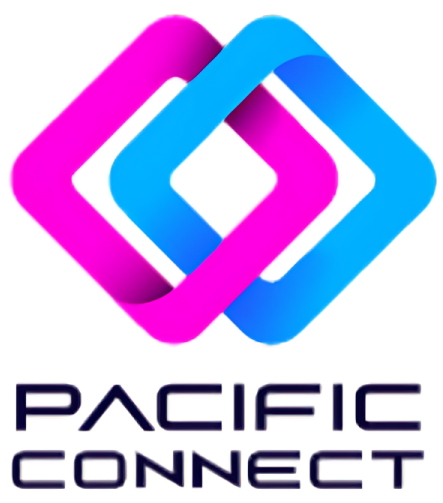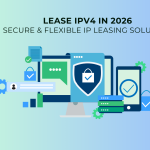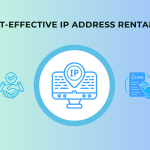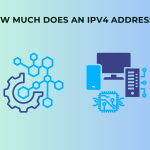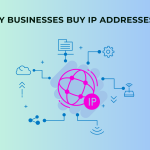The demand for IPv4 addresses continues to grow, even as available supply shrinks. This scarcity has turned IPv4 into a digital commodity, raising questions such as: what is the current IPv4 price, and how do leasing fees compare with buying costs? In 2025, organizations have two main options: they can buy IP addresses as long-term assets or pay IP address leasing for flexibility. The right choice depends on your budget, growth plans, and long-term needs.
The Current IPv4 Price in 2025
In 2025, the IPv4 price typically ranges between $35 and $55 per address, depending on factors such as block size, reputation, and demand. Smaller blocks like a /24 (256 IPs) usually fall on the higher end of the scale, while medium-sized allocations such as a /22 (1,024 IPs) are often available in the mid-range. Larger blocks, like a /20 (4,096 IPs), tend to benefit from volume discounts, with the per-IP rate dropping closer to the lower end of the spectrum.
This pricing landscape is one of the main reasons why many businesses explore IPv4 lease options instead of making a full purchase. Leasing provides flexibility and predictable IP address leasing fees, especially for short-term projects or companies scaling their networks without long-term commitments.
IPv4 Lease Price Explained
For businesses avoiding large upfront purchases, leasing offers flexibility. The IPv4 lease price in 2025 typically falls between $0.25 and $0.55 per IP per month, depending on the block size and the reputation of the addresses. A /24 block, for example, may cost $65 to $130 monthly. Leasing provides predictable expenses and scalability without tying up large amounts of capital.
Why IPv4 Prices Keep Rising
If IPv6 exists, why are IPv4 prices still climbing year after year? The short answer: businesses can’t afford to move away from IPv4 entirely. Let’s look at the key reasons driving costs upward and why knowing the right IPv4 price is more complex than it seems.
1. Ongoing Business Dependence
Despite IPv6 being available, IPv4 remains the backbone of the internet. ISPs use it to onboard customers, hosting companies allocate it for cloud servers and apps, and startups depend on it for global compatibility. This constant reliance ensures demand never really drops.
2. Scarcity Is Permanent
The supply problem is straightforward — the IPv4 pool ran out years ago. What’s circulating now are recycled, resold, or leased blocks. Because no “new” IPv4 addresses exist, the limited availability naturally drives the IPv4 lease price and purchase cost higher.
3. Block Size Impacts Cost
Pricing also depends on the subnet size. Smaller chunks, like a /24, are highly sought after since they’re manageable for small to medium businesses. Larger allocations, like /20 or /16, often come with a lower per-IP rate but require a bigger upfront investment.
4. Regional Market Differences
Location matters. In regions like North America and Europe, stronger demand usually pushes IPv4 prices higher, while markets in parts of Asia or Africa may offer slightly more competitive deals.
5. Extra Fees Along the Way
When you buy IP addresses or choose an IPv4 lease, additional expenses come into play. Broker fees, registry transfer costs, and legal checks all add layers to the final price — meaning the “headline rate” is rarely the only cost.
6. The IPv6 Transition Lag
IPv6 is the future, but the shift isn’t happening overnight. Many companies hesitate due to compatibility issues and the resources required for upgrades. Until IPv6 adoption becomes widespread, IPv4 remains indispensable — and its value stays high.
Buying vs. Leasing IPv4 Addresses
Deciding whether to purchase IP address blocks or lease them comes down to long-term strategy. Buying ensures permanent ownership and shields you from rising costs, while leasing offers affordability and adaptability. Companies with predictable, ongoing needs often buy IPv4 addresses, while those scaling quickly may start with leasing before moving to ownership.
Pacific Connect: A Reliable Partner
If you’re considering whether to lease or buy IPv4 addresses, Pacific Connect provides trusted solutions. With transparent pricing and secure transfers, they make it easy for businesses to either enter the IPv4 leasing market or purchase IP address blocks with confidence. Their expertise ensures you get clean, reliable IPs aligned with your goals.
Conclusion
So, how much does an IPv4 address cost in 2025? On average, expect $38–$55 per IP for purchase and $0.25–$0.55 per IP per month for leasing. While ownership is ideal for long-term stability, leasing remains attractive for short-term or flexible needs. With providers like Pacific Connect, businesses have access to secure, scalable, and cost-effective IPv4 solutions—whether through leasing or ownership.
FAQs
Between $38 and $55 per address, depending on the block size and reputation.
They average $0.25 to $0.55 per IP monthly, plus minor setup or management fees.
Buy if you need permanent ownership, lease if you want flexibility and lower upfront costs.
It reduces upfront costs, provides predictable expenses, and allows scaling.
Yes, Pacific Connect offers both leasing and buying options with secure, clean IP blocks.
